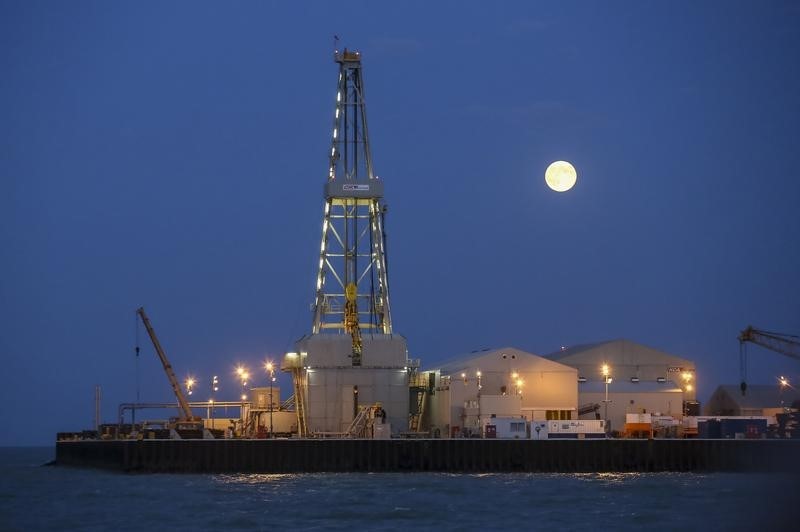By Florence Tan
SINGAPORE/JAKARTA (Reuters) - Indonesia's removal of taxes on oil and gas explorers is a good first step, but more is needed to lure investment from companies that have cut budgets and laid off staff after a precipitous plunge in prices, industry analysts said on Friday.
The Indonesian government is trying to revive its flagging upstream oil and gas sector as the country's proved oil and gas reserves have fallen and companies slashed spending after a nearly 60 percent drop in oil prices (LCOc1) from mid-2014.
As a result of the spending cuts, analysts have warned of sharp production declines at Asian oilfields over the next decade, increasing the region's reliance on imported oil.
To give the sector a boost, the government announced on Thursday it is removing taxes on oil and gas exploration.
"Reversing some of the changes introduced with GR79 is a significant step in the right direction, but in the current oil price environment, it could take several years to restore investor confidence in Indonesia's oil and gas sector," said Johan Utama, an analyst at energy consultancy Wood Mackenzie.
Southeast Asia's biggest economy has strong potential for energy demand growth and holds the second-largest proved gas reserves in the Asia-Pacific, but bureaucracy and regulatory uncertainty have hampered the sector's development, industry analysts say.
"The reduction in global exploration budgets will result in a focus on lower cost, lower risk prospects, in regimes that offer the best investment returns in the shortest possible timeframe," Utama said.
"This will be challenging for Indonesia, where regulatory uncertainty and bureaucracy have led to the delay or suspension of several key oil and gas projects."
Indonesia wants to ramp up oil and gas production to bolster government finances. The sector is expected to contribute just 3.4 percent to state revenue in 2016, down from 25 percent in 2006.
Indonesia is an OPEC member but has been a net oil importer for years. Oil production has declined steadily from a peak of 1.7 million barrels per day in 1991 to an average of 786,000 bpd in 2015, according to Indonesian government data.
Indonesia's total proved oil reserves stood at 3.6 billion barrels at end-2015, the lowest since BP (LON:BP) started collecting data in 1980. The country holds the second largest proved gas reserves after China, although that has also dropped from a peak in 2008, BP's data showed.
Chevron Corp (N:CVX), ExxonMobil (N:XOM) and Total (PA:TOTF) are among the largest investors in Indonesia.
Investors are waiting to see if the government will improve the fiscal terms in production sharing contracts, such as giving investors a larger share of the output that would boost returns and cash flow at oil and gas companies.
"It's not going to make people fall off the chair and then invest right away. It needs to have a follow-on effect," a Jakarta-based industry official with a foreign exploration company said of the new tax incentives.
"So you have already reduced the exploration tax, what's next? Are you going to change the fiscal terms? Reduce gas prices?"
Industries have lobbied for lower natural gas prices, which may negate efforts by the Indonesian government to boost activities in the oil and gas sector, said the official who declined to be named as he is not authorised to speak to the media.
